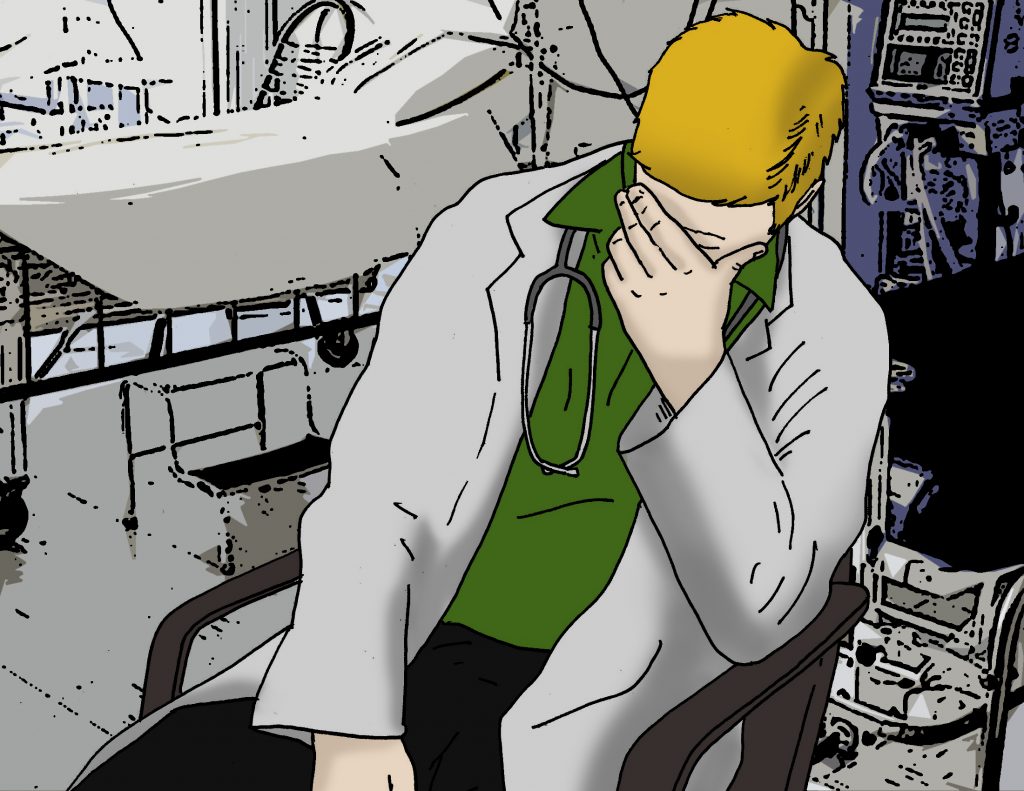
…..Just like in any industry, medical practitioners are not immune to being stricken with depression. But unlike other professions, doctors have to deal with intense judgement from their bosses and peers that may directly affect their career. The sad truth is that most doctors that suffer from depression do so in silence, thereby putting themselves at risk of self-medicating, self-destructing, and even suicide. So how might one deal with depression in the world of Medicine?
…..Following are five steps you can take in order to begin assessing and addressing mental illness in the medical practice:
- Manage Risk Factors – Just like regular people, doctors may have certain triggers that set them off on a downward trajectory. Knowing the history of a doctor that suffers from depression can help identify high-risk moments and give those involved a head start in managing the impending fallout. Extra time should be given to doctors that need to recover from a bout of sadness in order to compose themselves and return to work.
- Recognize Symptoms – Depressed doctors usually exhibit unusual symptoms due to being adversely affected by their exposure to the experiences of their patients. Take note of colleagues that seem to have difficulty focusing on tasks, behaving strangely, and/or being touchy and irate as these may be symptoms related to depression, anxiety, or post-traumatic stress disorder (PTSD).
- Deal With Things Head On – While it’s important to be sensitive around victims of depression, it is even more important to deal with it head on. You must ask all the tough questions – especially when suicide is a possibility. If you believe anyone you know in your practice is going through a dark moment, talk to them and try to assess if they need professional help. If they do, refer them to a trusted doctor that will respect their privacy and help diagnose and treat them.
- Outdo Your Management Policies – Company policies dealing with depression are usually lackluster and do not address mental illness satisfactorily. While they may be slightly helpful, it will fall into the hands of the humans around the workplace to go beyond the call of duty and provide genuine person-to-person care for their depressed colleagues. Look into cognitive behavioral therapy and if company policy does not provide easy access to antidepressant medication, then perhaps it’s time that someone suggests it to the HR Department.
- Push For A Caring Workplace – The challenges of being a doctor are ever-growing and becoming more complex as time goes on. Unfortunately, it is still a rarity to find a medical culture that understands the importance of treating mental illness seriously. It’s time for all workers employed in the medical field to push for a caring environment in the workplace. People should not have to hide a condition for fear of being persecuted and judged for it. Encouraging people to withstand harassment, discrimination, and bullying only serves to worsen the problem – so health management plans need to utilized routinely in order to make a lasting improvement for everyone.
….When it comes to your needs as a doctor and as a person – you can place your trust in TukkoMed. Our mission is to be there for you, when you need it most – and we aim to extend the helpful hand that guides you through.
